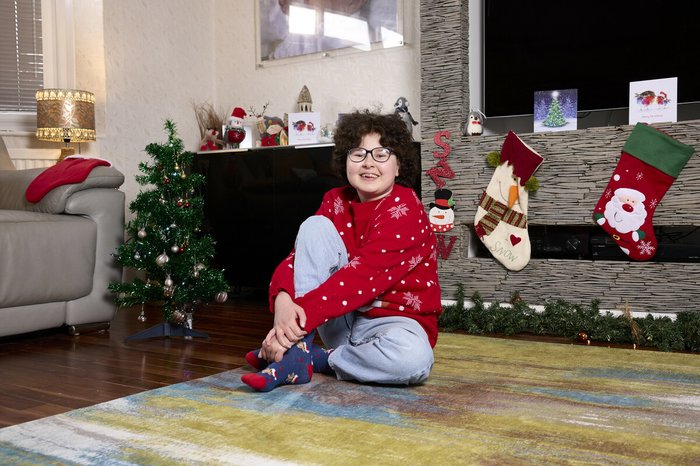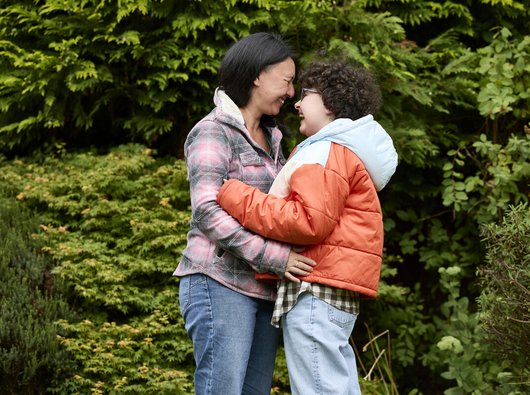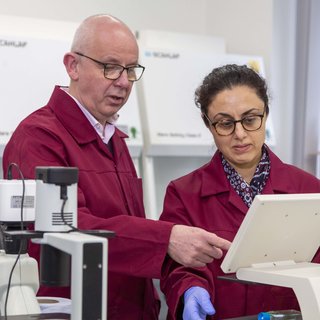Research achievements
Over the last year, we funded £5.3m worth of new blood cancer research; this included 16 new projects, 11 of which were funded for the first time. It means we are now funding 106 research staff at 21 research institutions across the UK.
Our research achievement highlights
Our new partnership with the Medical Research Council was successful in its first year, awarding a Clinician Scientist Fellowship to Dr Helen Parry who will build her research group to focus on improving immunity in Chronic Lymphocytic Leukaemia (CLL) patients.
Research funded in our Vaccine Research Programme has informed eligibility criteria for pre-and post-exposure treatment, prophylaxis eligibility for the Antibody testing programme and NHS England communications on the autumn 2022 booster vaccine programme.
During 2022-2023, our research resulted in 45 papers being published in scientific journals, each one representing another step towards the day when blood cancer is beaten.
Our research is also having an impact on people’s lives right now, as there are 3,862 people enrolled in Blood Cancer UK-funded clinical trials. These people are getting a chance to access promising new treatments not yet available on the NHS.
New findings at University of Oxford
Researchers at the University of Oxford contributed to a new finding that gives hope that proteins linked to a mutation in myelodysplastic syndromes (MDS) and acute myeloid leukaemia might be suitable targets for treatment. This could pave the way for researchers to develop new treatments for these types of blood cancer.
Smoking increases risk of blood cancer
Our researchers contributed to a study looking at data from thousands of people to show that smoking increases the risk of clonal haematopoiesis, a common precancerous condition that increases risk of blood cancer.
Institute of Cancer Research studies
Researchers at the Institute of Cancer Research studied acute lymphoblastic leukaemia (ALL) in twins, to better understand how it develops. They found that if twins share a placenta and one twin develops ALL, then the other twin is at higher risk of developing it. This finding could lead to improved guidance and monitoring for families where one twin has developed ALL but the other has not.
The clinical trial that saved Alyssa's life

The story that has touched our community more than any other during 2022-2023 was that of Alyssa, a girl from Leicester who had leukaemia. When standard treatment failed to put her leukaemia into long-term remission, the only option left seemed to be palliative care.
But breakthrough research we previously funded led to a clinical trial of a promising new treatment at Great Ormond Street Research Hospital. Alyssa was the first person to take part in this trial, which was successful and thankfully her leukaemia is now in remission, meaning she and her family have renewed hope for the future.
Alyssa's story made national newspaper headlines
We're proud that our research contributed to giving Alyssa another chance at life.
Why not read more about this life-changing research? You can also watch Alyssa and her mum, Kiona, tell their story.

Research expenditure
To see an exact breakdown of our research expenditure from last year by type of grant and type of blood cancer, download our full report and take a look at page 10.
Discover the rest of our 2022-2023 annual report
An important step on the road to beating blood cancer

